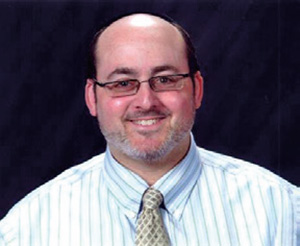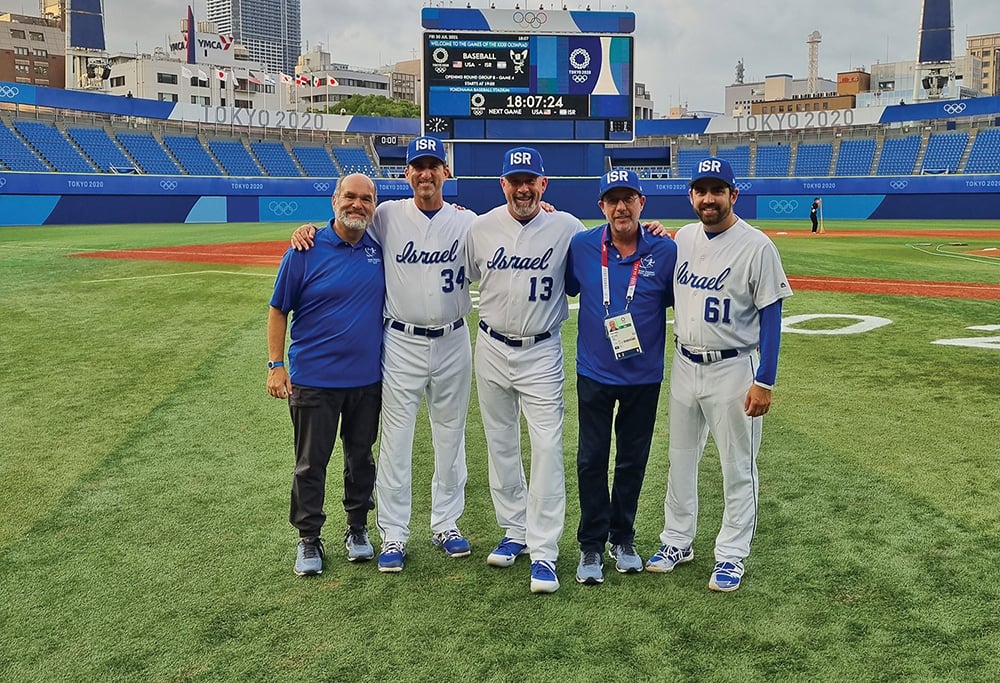
This article has been a long time in coming. For the past few years, I’ve attended Kosherfest, held at the Meadowlands Convention Center and billed as the world’s largest trade show for kosher-certified products. As a member of the press, I’m allowed to attend even though I don’t have a food business. Those of you who read my columns regularly, though, know I’m more into hashgacha pratit than hashgacha, and food for thought than food for the table. So why do I go?
To be frank, my number-one priority is kibud av. My father attends Kosherfest with a kosher-certifying agency and I go to see him and be seen by him. Once I’m there, of course, this playground for the taste buds is fair game. However, in order to be true to my mission, I have been searching for inspiration at Kosherfest these past few years and it’s finally time to share some of what I’ve learned.
Before we even walk through the doors, I learned a lesson from a fellow who’d attended in the past. Though it’s a trade show, some people think of it as the world’s largest kosher buffet where you have to make sure you eat your fill of the dairy items before you try the beef jerky or South African sausage. My friend was at a booth and saw a woman taking four lollipops. The proprietor said, “One per person, please,” to which she innocently replied, “But I have four children!”
As my friend pointed out, these samples aren’t for you to give to your children, but to taste and say, “I’d like to buy 100 cases of these for my store.” The mishnah in Pirkei Avot warns us to treat the money of others with as much care as we’d treat our own hard-earned cash. That means recognizing why he’s giving out the samples. If we think about things that way, we’re focused on others and not on ourselves. That’s a much more “kosher” approach to life.
So now, I walk through the doors into a wonderland of sights, smells and delightful tastes. As I said, I make a beeline for my father’s booth and spend a few moments visiting him and giving him the opportunity to show me off to his friends and acquaintances. I’m not sure there’s so much to show, but as a father he takes pride in the children he’s raised. Another good point.
We go to visit an ice cream company whose owner my father has known since they were teens. I enjoy a tasty sample and discuss the challenge of marketing a new product they have. It reminds me that just because something is good doesn’t mean people will automatically recognize it. Rebbeim and teachers must make sure the Torah they teach, as well as the midot and other subjects they try to convey, must be attractive and look like they taste good so they can complete their goals.
A bit later, a group of rabbis from a fledgling kosher agency ask him for advice on growing their business. His response? “Treat everyone with dignity and respect.” The conversation continued as I made my way around the exhibit hall.
I had asked Menachem Lubinsky, president and CEO of Lubicom, the power behind Kosherfest, to share something inspirational with me. He said, “You have all these people, from all different backgrounds and all different parts of the world, and they are united by one thing—kosher food.” It wasn’t until this year that it dawned on me that Kosherfest is usually held the week of Veteran’s Day, which also turns out to be Parshat Toldos, in which we have two very important instances of eating in the Torah.
Esav said, “Give me some of this red stuff; pour it down my throat,” and Yitzchak asks Esav to “bring me food I enjoy so I can bless you.” Two approaches to eating—one focused on the quick enjoyment, and one focused on the relationships that can be built over food. When you consider a woman (or a man) preparing food for the Shabbos meal, wanting everyone to enjoy the flavors and tastes of Shabbos, using that physical pleasure for a spiritual purpose, you get a sense of what Yitzchak was teaching Esav—that food is a valuable tool for unity, just as Mr. Lubinsky said.
I asked one group what they could find inspirational for me, and they said, “We collect all the leftover food after Kosherfest and distribute it to the poor through our meal program.” Inspiring! One kosher-certifying agency had cards with a prayer asking Hashem to help us protect ourselves from lashon hara, suggesting that if we’re so careful about what goes into our mouths, we should be at least as careful about what comes out. (I’m waiting for a prayer for protecting ourselves from lashon hara on social media. I’ll bet someone eventually comes up with a meme for that.)
I spoke to a marketing professional about an article that appeared in a national media outlet discussing his client’s product. He said, “One woman, a food blogger, was quoted as saying she had nightmares about [said product]. An entire article, and all people remember are six words.” How careful we must be with what comes out of our mouths, for though an unkosher food may be nullified by 60 parts of a kosher one, unkosher words can leave a bad taste in far greater proportion.
At one booth, I spoke to a relatively new employee at a long-established company. He said their challenge wasn’t getting stores to stock their merchandise—“Everyone knows us.” Their challenge, he explained, was maintaining those relationships and keeping them fresh. Another deep lesson. Our friends, family and spouses have known us for years. But that doesn’t mean it doesn’t require work to maintain those relationships and that one can assume they will be there forever without any effort or thought.
I spied booths with flashing lights, chefs preparing food on premises, spinning wheels of prizes, and all sorts of things intended to attract people. But once they came over, the goal was to make a personal connection and see how the vendor could help them while helping their own business too. The Chofetz Chaim famously says that in the bracha of Borei Nefashot, recited after eating things like meat, fruit or drinks, we thank Hashem for creating “many different creatures and their lackings.” Why thank Hashem for the fact that we may be missing something? Because since we each have something someone else doesn’t, we create a community built on needing others. The doctor needs shoes, the shoemaker needs bread and the baker needs someone to teach his children. Because we need each other, we find and appreciate qualities in others that we don’t have.
Also, this reminds me that one should not, as the woman with the four candies, try to get everything for free. People ask lawyers and doctors for free advice, just as they ask rabbis for help with speeches, and stockbrokers for finance tips. If we realize that others are trying to use their talents for their parnasa as Hashem intended, we won’t try to shortchange anyone, keeping our money kosher too.
Finally, I’d like to leave you with one lasting bit of inspiration that I obtained on my visit to Kosherfest. There was a small area in the back of the convention center that was dedicated as a place to pray. A large sign as well as the show map proclaimed “Mincha.”
One young man whom I’d met had lost his father a few months ago. He went to the minyan spot and waited his turn so he could daven “for the amud,” leading the tefillah as a merit for his father’s soul. As the previous minyan was ending, an older man rushed over and said, “I need the amud!” Presumably, he too, was a mourner, but he didn’t stop to ask if someone else was waiting for it. This young man stood there in shock, and that’s when I walked over.
He told me what happened, and I said, “My mother, a”h, left in her tzava’a (ethical will) that we should never fight for the right to lead davening. It is a much greater merit for the soul when a child acts properly than when they act like a glutton, ignoring the feelings of others and thinking they’re doing a ‘big mitzvah.’”
He knew what I was talking about, and said, “But he could have just waited for the next minyan!” I agreed, reminding him, “That’s why you’re getting this great opportunity to overcome your feelings and give a greater zechus to your father.” He wasn’t sure he could daven in this man’s minyan, but in the end he did, saying amen to each bracha and reciting his own Kaddish after Aleinu. I doubt the man who’d roughly appropriated the davening noticed it, but I definitely took note. That was a very inspiring moment that had nothing to do with food and everything to do with the kashrut of a Torah Jew, who does everything with a spiritual approach in mind.
So, I guess you could say that at Kosherfest I got lots of good things to digest. I hope you will enjoy them too.
Feedback is welcome and appreciated. Email [email protected] to share your thoughts. Life is full of inspiration, just waiting for us to find it. It’s a treasure hunt and the rewards are greater than we can imagine.
By Rabbi Jonathan Gewirtz













